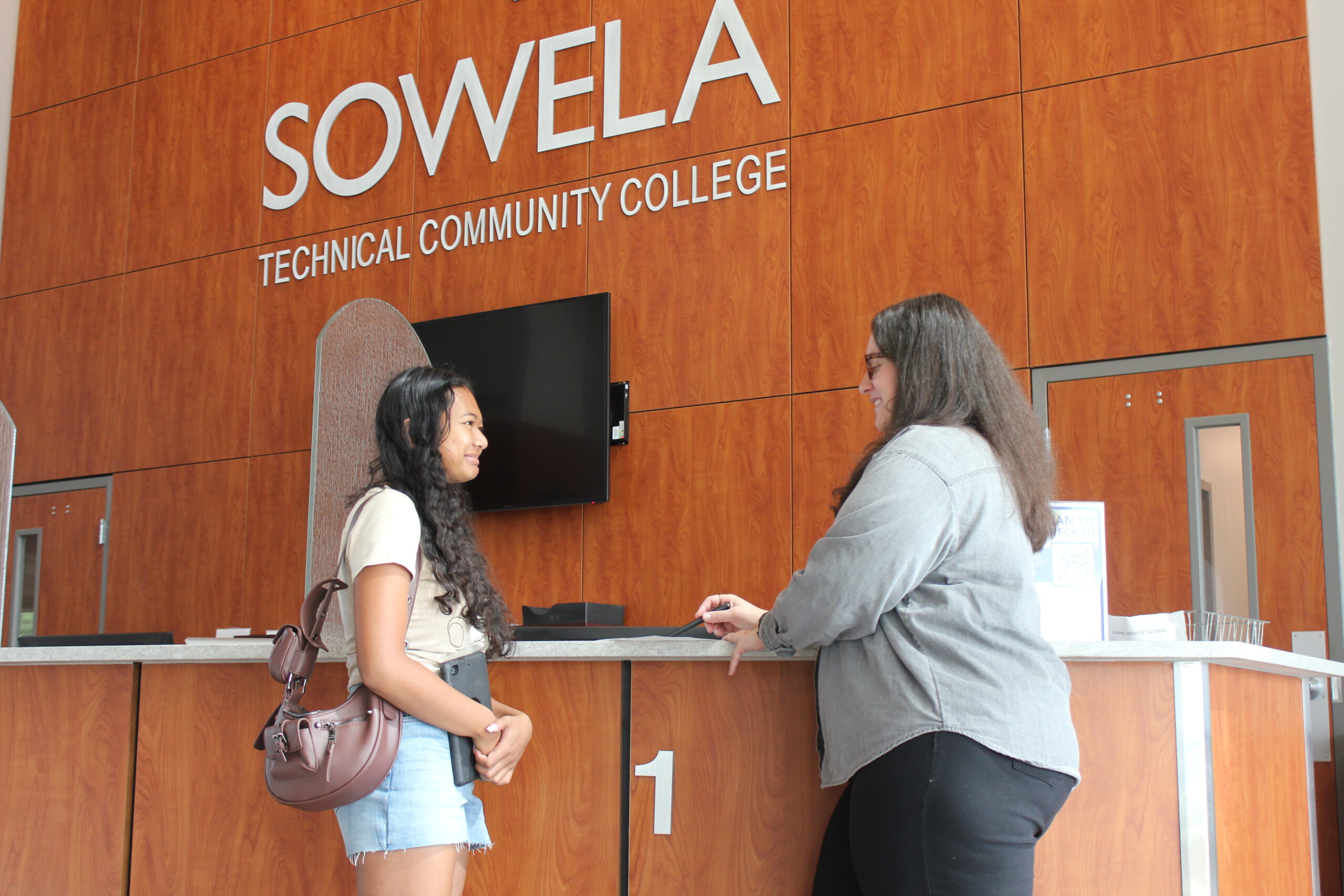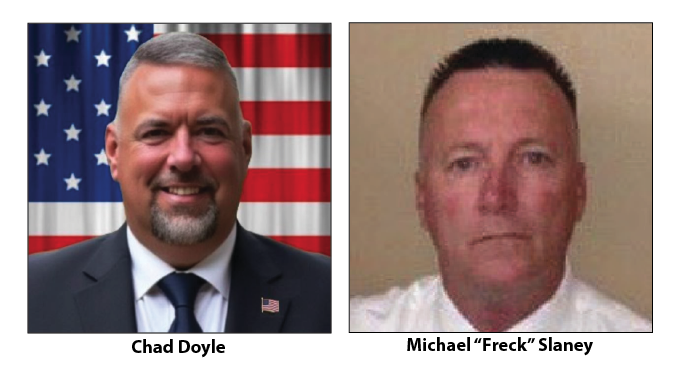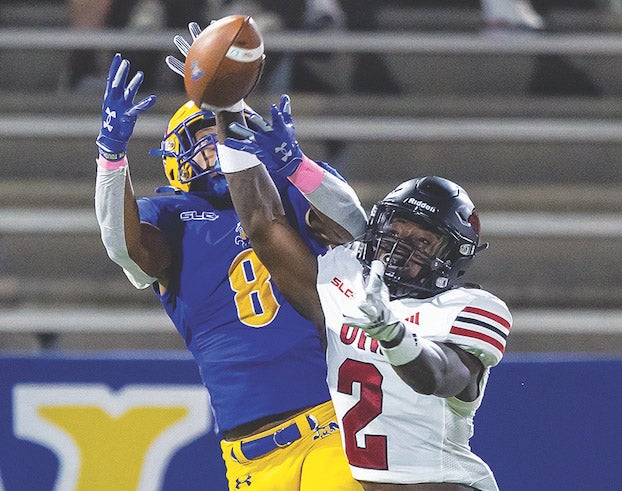McNeese, Sowela enrollment numbers on the rise
Published 6:48 am Wednesday, September 18, 2024

- (Special to the American Press)
While other colleges and universities in Louisiana (and the country) are witnessing a steady decline in enrollment, Southwest Louisiana institutions McNeese State University and Sowela Technical Community College both saw an influx of students this fall.
The Education Data Initiative reported in August that nationwide college enrollment totaled about 15.4 million, a seven percent decline from 2019. In Louisiana, the number of enrolled students is 238,689, a 9.5 percent decrease from 2010, the report said.
McNeese
Trending
McNeese’s enrollment in fall 2024 increased by three percent to 6,243 students. This is “6,243 reasons to celebrate” said McNeese President Wade Rousse in a release.
This is the first three percent enrollment increase in over 10 years. First-time freshman enrollment is up by 10.4 percent from fall 2023, graduate student enrollment is up seven percent and transfer student enrollment is up by 26.6 percent.
Rousse told the American Press that in a climate where universities struggle to increase enrollment, McNeese is focusing on its strength to design degrees that address regional workforce needs and leave students career-ready. They work closely with local business and industry leaders to align curricula and prepare students “with the skills and hands-on training they need to be successful in their chosen careers.”
Enrollment decline has been projected for years, he explained, with industry professionals citing factors like nationwide birth rate declines, decreased immigration and international student enrollment, COVID-19 and “campaigns designed to create doubt about the value of a college degree.”
In Southwest Louisiana, these conditions were worsened by the natural disasters of 2020 and 2021. Total enrollment in 2019 was 7,302. From 2020 to 2023, enrollment steadily decreased, hitting its lowest number in 19 years in 2023 – 6,061.
However, amid disaster recovery, McNeese was able to “lead the way in successfully addressing the challenges of declining enrollment.”
Trending
“The silver lining to these latter events, however, was that McNeese was already proactively planning for improvements and changes to our campus and our internal processes that owls enable us to recruit more effectively,” he said. “So, after the storms, we were able to shift those plans into high gear.”
McNeese administration is “critically examining” everything they do on campus.
“If it doesn’t directly impact enrollment, retention or the job placement of our students, then we stop doing it and we focus on the things we can do to support these efforts,” he said.
The Executive Leadership Team meets weekly to continuously examine and update their processes.
“We’ve moved additional people into new roles to help support these key areas, and in some cases, we’ve consolidated efforts to ensure that the work we’re doing has a more meaningful impact,” he explained. “Our teams put a lot of work in to achieve these results.”
In the spirit of “excellence with a personal touch,” McNeese connects directly with families and prospective students. They are on a mission to make the enrollment process as “frictionless as possible,” and “continue to build awareness of the true value of a four-year degree, and the generational impact it can have on families and the quality of life of our region” to keep enrollment levels on the up and up.
Sowela
With 4,037 students enrolled, Sowela has topped its enrollment record set in fall 2019 – 3,552 students.
From fall 2023 to fall 2024, enrollment increased by 8.44 percent, continuing a pattern of enrollment increases over past years: 19.5 percent from 2021 to 2022 and 11.5 percent from 2022 to 2023.
Over 30 programs are offered at Sowela. The programs that saw the greatest increase in enrollment were accounting, 39 percent; chemical laboratory, 37.5 percent; culinary arts, 28 percent; and industrial electrical, 22.5 percent. Sowela has four locations, and the Oakdale campus saw the greatest increase at 18 percent, according to a release.
Sowela Chancellor Neil Aspinwall told The American Press he attributes the consistent increases to a “student-first culture” where faculty and staff “remain focused on removing obstacles and barriers that prevent students from moving forward” and graduating, and small class sizes that give students a personal, attentive experience that is needed to succeed.
He believes the nationwide decline in enrollment is due to a need for more student prioritization at other institutions.
“No longer can we insist that students just show up and take the instructional programs we offer without us realizing that many of these students have life challenges that must be addressed before and in order for them to attempt to achieve any degree of success,” he explained.
“We can market and advertise to get the students to enroll but unless we offer the proper amount of student support services- tutoring, counseling, food pantries, scholarships, mental health care – the students’ chances of persisting and completing diminish greatly.”
To increase enrollment, Sowela Student Services implemented a program where academic advisors met regularly with students from when they enrolled until graduation to ensure their needs were met, and that they were on schedule. The college also contacted former students who stopped attending or dropped out. They encouraged these students to re-enroll and complete their programs.
In addition to a student-driven culture, rising enrollment is tied to programs related to the region’s workforce needs and the static price of tuition and fees.





